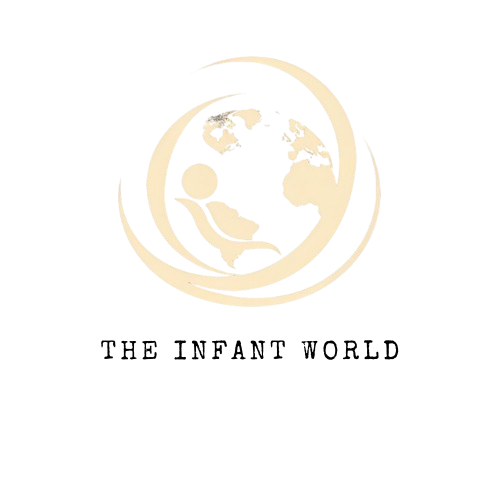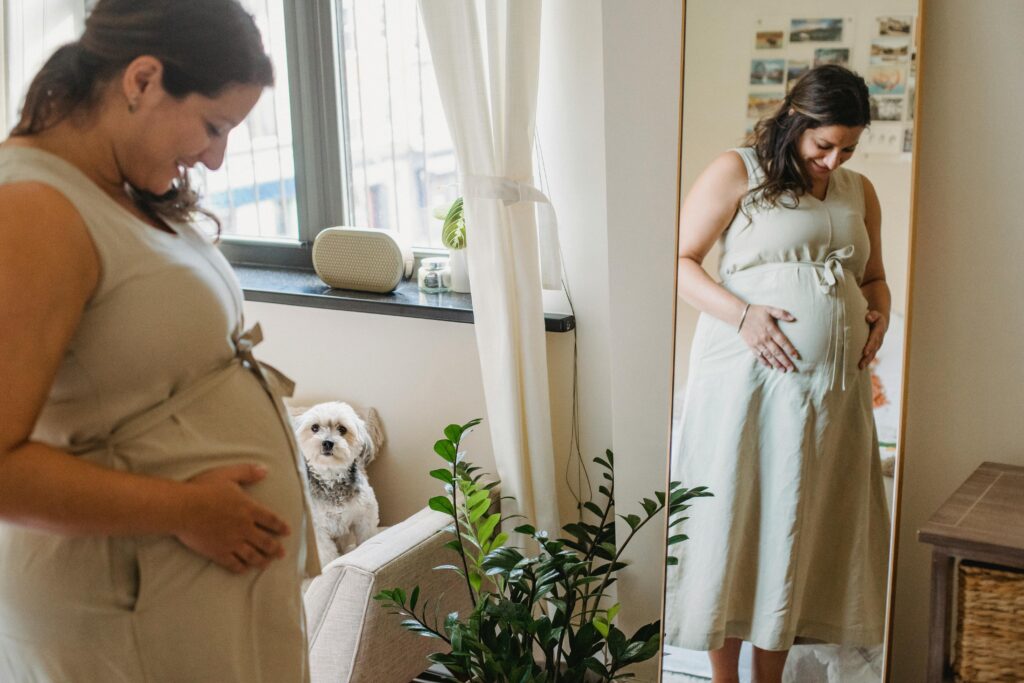A new life’s journey into the world is a wondrous one that is full of profound transformation, amazement, and moments of awe. A new chapter filled with both joyful highs and difficult lows begins in the life of a woman as the marvel of childbirth unfolds. Although there is a lot of focus on prenatal care, postpartum care is an equally important topic that needs to be brought to light. A woman’s body goes through an amazing healing process during the postpartum period, which lasts from childbirth to the first few months of motherhood. During this time, her heart and mind are navigating the unfamiliar seas of becoming a new mother.
We will delve into the complex fabric of postpartum care in this extensive book, examining the many physical and psychological changes that coincide with childbirth. We shall travel through the highs and lows of the postpartum experience, from the amazing voyage of uterine contractions to the delicate subtleties of emotional well-being. Along the road, we will learn how to take care of yourself practically, how to get help, and how to nourish your body, mind, and spirit during this time of transformation.

Physical Modifications
After giving birth, a woman’s body experiences profound and complex bodily changes. Care and attention must be given to every facet of postpartum recuperation in order to facilitate a seamless transition into parenthood.
Uterine Contractions: The uterus progressively reverts to its pre-pregnancy size and position throughout the involution process that follows childbirth. Uterine contractions, often known as afterpains, help with this. These contractions lessen the chance of postpartum hemorrhage and aid in the removal of any leftover placental tissue. Even while afterpains can be difficult, particularly when nursing when oxytocin release may make them more noticeable, they are an inevitable and essential aspect of the healing process that occurs after giving birth.
Vaginal discharge (lochia): The term “lochia” refers to the discharge that comes from the vagina after giving birth. Lochia may have blood clots and initially has a vivid red color. The discharge first appears pink or reddish, but it gradually fades to a yellow or white discharge that resembles a regular menstrual flow. Blood, mucus, and uterine tissue shed during the healing process make up lochia. Tampons should not be used by new moms; instead, sanitary pads should be used to absorb the discharge and lower the risk of infection. After giving birth, lochia usually lasts for a few weeks before progressively decreasing as the uterus recovers.
Perineal Soreness and Healing: In the first few days following a vaginal birth, women frequently experience pain and soreness in their purines. Because of the stretching and potential ripping that occurs during childbirth, the perineum—the region between the vagina and the anus—may be sore, bruised, or swollen. New mothers can utilize a variety of methods to reduce pain and expedite healing, such as topical pain treatment sprays or creams, sitz baths (soaking the perineal area in warm water), and ice packs. Furthermore, maintaining proper perineal hygiene will help avoid infection and promote healing. A few examples of this hygiene include gently patting the area dry after urinating and having bowel movements. Exercises for the pelvic floor, such Kegels, can help strengthen these muscles and aid in healing.
Breast Changes: The breasts change significantly during pregnancy and after giving birth as they get ready for nursing and lactation. As milk production starts, the breasts may feel sore or swollen and engorge during the early postpartum phase. Engorgement is the result of increased blood supply to the breasts and the nutrient-rich first milk (colostrum) that the mammary glands generate filling the milk ducts. In order to relieve the discomfort caused by engorgement, new mothers should manually express or pump a tiny amount of milk to relieve pressure, apply warm compresses or take warm baths to stimulate milk flow, and make sure they are breastfeeding properly positioned and latching on. Engorgement usually goes away in a few days to a week when breastfeeding becomes established. Additionally, breasts frequently leak milk, particularly during letdown, the reflex that causes the breasts to release milk in response to nursing. Nursing pads can be used inside a bra to stop leaks and avoid getting wet or uncomfortable. They can be disposable or reusable.
Recovery of the Abdominal Muscles: Diastasis recti, or the separation of the rectus abdominis muscles, is a result of the considerable strain that pregnancy causes on the abdominal muscles. A noticeable ridge or protrusion along the midline of the abdomen is known as diastasis recti, and it may be a factor in back discomfort and postpartum core weakness. Targeted workouts can strengthen the abdominal muscles and aid in healing, even though diastasis recti frequently goes away on its own in the first few months after giving birth. Exercises that target diastasis recti safely and effectively include transverse abdominis activation, pelvic tilts, and core stability. Physical therapists or postpartum fitness professionals can offer advice on these types of exercises. Until the diastasis recti has healed, new moms should refrain from performing exercises like sit-ups and traditional crunches that put undue tension on the abdominal muscles.

Changes in Emotion
Deep and multifaceted, the emotional shifts that coincide with childbirth comprise a spectrum of emotions and experiences that women encounter as they adjust to becoming mothers. It is vital to comprehend and manage these feelings in order to foster resilience and emotional well-being throughout the postpartum phase.
Baby Blues: In the days and weeks after giving birth, many new mothers encounter this typical and fleeting emotional reaction. The baby blues can cause mood changes, crying, irritation, anxiety, and overwhelming or depressing feelings. Hormonal changes, sleep loss, physical discomfort, and the stress of adjusting to a new infant are considered to be the causes of the baby blues. Though difficult at times, the baby blues usually pass as hormones level out and new moms adjust to their new duties as parents over the course of a few days to a few weeks. New mothers can prioritize self-care practices like getting enough sleep, eating a healthy diet, drinking plenty of water, and participating in stress-relieving and relaxing activities to help them deal with the baby blues. Anxiety and depressive feelings can also be reduced by talking to loved ones, reaching out to supporting people, and asking medical professionals for assurance.
Postpartum Depression (PPD): Some women experience postpartum depression, a more severe and long-lasting mood condition, following childbirth. Deep sadness, hopelessness, worthlessness, and guilt that interfere with day-to-day functioning and the capacity to care for oneself and one’s child are characteristics of postpartum depression (PPD). Additional signs of post-traumatic stress disorder (PTSD) include irregular eating or sleeping schedules, losing interest in past hobbies, having trouble forming a link with the infant, and intrusive thoughts or anxieties about hurting oneself or the child. Many biological, psychological, and social factors, such as hormone fluctuations, genetic susceptibility, a history of depression or anxiety, a lack of social support, and stressful life events, are thought to contribute to post-traumatic stress disorder (PTSD). It’s critical that new moms understand the warning signs and symptoms of post-traumatic stress disorder (PPD) and get professional assistance if they are feeling depressed or hopeless all the time. In order to support mental well-being, PPD treatment may involve counseling, medication, support groups, and lifestyle modifications. The majority of PPD-afflicted women may recover and lead happy, fulfilled lives with their children with the right care and assistance.
Anxiety and Overwhelm: As new mothers navigate changes in their relationships, routines, and sense of identity while adjusting to the duties of caring for a child, the postpartum period can be a time of significant anxiety and overwhelm. Anxiety and stress are frequently brought on by worries about the health and development of the infant, lack of confidence in one’s ability to parent, difficulties nursing or getting enough sleep, and feelings of loneliness or inadequacy. New moms can learn self-compassion and acceptance techniques to help them deal with anxiety and overwhelm. They can understand that feeling overwhelmed occasionally is normal and that asking for help is a sign of strength rather than weakness. Stress can be decreased and emotional well-being can be enhanced by establishing routines, prioritizing self-care activities, and setting reasonable goals. Making new mother connections on social media, in online forums, or through support groups can also help to validate, encourage, and reassure you that you’re not alone in your experiences.
Body Image Issues: A woman’s body undergoes significant changes throughout pregnancy and childbirth, which may have an effect on her self-esteem and body image. As they adjust to changes in weight, shape, and appearance, many new mothers experience emotions of uncertainty, dissatisfaction, or disappointment with their postpartum bodies. Stretch marks, loose skin, changes in breast size or shape, and trouble fitting into pre-pregnancy clothes are examples of common body image problems. It’s critical for new moms to practice self-compassion and acceptance as they get used to their postpartum bodies and acknowledge that bringing a new life into the world has dramatically changed their bodies. It can be beneficial to surround oneself with people who appreciate and praise the power and beauty of the postpartum body in order to foster a good body image and self-confidence. Practicing self-care practices that support the body, mind, and soul—like light exercise, deep breathing exercises, and positive self-talk—can also assist new moms in developing an attitude of gratitude and admiration for their bodies’ adaptability and potential for development.

Self-Healing Advice
In order to focus their own health and well-being while caring for their newborns, new mothers must emphasize self-care throughout the postpartum time. Self-care rituals incorporated into everyday life can support new moms in overcoming the obstacles of parenting with confidence, grace, and perseverance.
Prioritize Rest: Sleep deprivation can worsen physical discomfort, emotional misery, and cognitive impairment. Therefore, getting enough sleep is essential for postpartum healing and general well-being. Setting aside time for rest whenever feasible will help lessen the consequences of sleep deprivation, even though it’s common for new parents to encounter disturbed sleep patterns as a result of overnight feedings and baby care. When the baby sleeps during the day, new mothers can take naps during the day, ask a partner or family member to help with nighttime caregiving, and set up a relaxing sleep environment that promotes relaxation and restorative sleep. In addition to promoting restful sleep and enhancing overall sleep quality, practicing excellent sleep hygiene includes setting up a regular bedtime routine, minimizing caffeine and electronic device use before bed, and creating a pleasant sleeping environment.
Consume Nutritious Foods: A healthy diet is crucial for both breastfeeding success and postpartum recuperation since it supplies the vital nutrients required to boost tissue repair, restore energy reserves, and increase milk supply. To satisfy their increased dietary needs during the postpartum period, new mothers should strive to consume a balanced diet rich in fruits, vegetables, whole grains, lean meats, and healthy fats. Nutrient-dense foods can help ensure proper consumption of important vitamins, minerals, antioxidants, and macronutrients. Examples of these foods include leafy greens, colorful fruits and vegetables, whole grains, lean meats, fish, eggs, dairy products, nuts, seeds, and legumes. Additionally, it’s critical for new moms to maintain their hydration levels by drinking lots of water throughout the day, since dehydration can worsen postpartum symptoms, increase exhaustion, and hinder milk production. Make sure you consume eight to ten glasses of liquids a day, such as milk, herbal teas, water, and homemade fruit-infused drinks.
Keep Yourself Hydrated: Water helps replace lost fluids, boosts milk production, and enhances general health and wellbeing. It is crucial for both postpartum recuperation and the success of breastfeeding. Water is the ideal beverage to stay hydrated during the day, and new mothers should make it a goal to drink a lot of it. Water consumption aids in the prevention of dehydration, which worsens fatigue, reduces cognitive function, and increases the risk of urinary tract infections. To meet their fluid needs, new mothers can also drink herbal teas, coconut water, milk, and homemade fruit-infused waters, among other hydrating beverages. Drink fluids anytime you feel thirsty, paying attention to your body’s thirst signals. Individual fluid requirements can vary based on a number of factors, including activity level, climate, and breastfeeding status. Try to consume eight to ten cups of fluids a day, or as much as necessary to stay hydrated and maintain a pale yellow urine color, if you’re nursing.
Assign Tasks: Taking care of a newborn, particularly in the initial weeks and months after delivery, may be physically and psychologically taxing. In order to share the burden of childcare and housework, new moms should not be afraid to ask their spouse, family, friends, or other supporters for assistance. Assigning responsibilities like meal preparation, housekeeping, laundry, grocery shopping, and child care can ease the workload and provide new moms with the much-needed time and energy to recuperate, rest, and strengthen their bond with their infant. Share your preferences and needs with your support system, and be prepared to politely accept help when it is given. Never forget that you don’t have to handle everything yourself; it’s acceptable to put self-care first and ask for assistance when you need it.
Exercise Gently: Frequent physical activity helps strengthen muscles, enhance cardiovascular health, elevate mood, and promote general well-being, all of which are vital for postpartum recovery. But it’s crucial for new moms to pay attention to their bodies and begin with safe, mild exercises that suit their stage of postpartum recuperation. Walking, yoga, swimming, and postpartum fitness courses are examples of mild workouts that can help increase energy levels, relieve muscle tension, and improve circulation without putting too much strain on the body. Whenever your strength and endurance increase, progressively increase the duration and intensity of your daily program to aim for at least 30 minutes of moderate-intensity exercise. Pay attention to any warning signs or symptoms, such as pain, exhaustion, lightheadedness, or heavy bleeding, and cease exercising immediately if you feel uncomfortable or have trouble breathing. Before beginning any fitness program, speak with your healthcare professional, particularly if you had a difficult pregnancy, delivery, or postpartum recuperation.
Connect with Other Mothers: As you experience the pleasures and difficulties of parenthood together, creating a support network of other new mothers can offer priceless emotional support, helpful guidance, and companionship. Participating in online forums or social media groups for new mothers in your town, attending new parent programs, or joining a postpartum support group are all worthwhile options. Assuring yourself that you’re not alone on your journey and helping to normalize your experiences and sentiments can all be achieved by making connections with other mothers who are going through similar joys and hardships. Openly express your ideas, queries, and worries to other mothers, and be prepared to reciprocate with words of support and encouragement. As you adjust to your new role as a parent, developing close relationships with other mothers can make you feel more powerful, supported, and confident.

Looking for Assistance
In order to manage the psychological and physical strain of giving birth and successfully make the adjustment to motherhood, it is imperative that newlyweds seek out support. Seeking support and assistance can have a big impact on your postpartum experience, regardless of whether you’re dealing with physical pain, mental turmoil, or the responsibilities of taking care of a newborn.
Family and Friends: During the postpartum phase, rely on your network of family, friends, and loved ones for emotional support, helpful advice, and words of encouragement. Openly communicate your ideas, emotions, and experiences to people you can trust, and don’t be afraid to ask for assistance when you need it. Having supportive people in your life, whether it be in the form of a listening ear, a helpful hand, or a shoulder to weep on, can significantly impact your postpartum experience.
Healthcare Professionals: During the postpartum phase, your obstetrician, midwife, or primary care physician are excellent resources for support and advice. Please don’t be afraid to ask questions or voice concerns to your healthcare provider on your mental or physical health. Your healthcare physician can provide you with individualized guidance, suggestions, and connections to resources for assistance, including postpartum support groups, mental health specialists, and lactation consultants. Keep all of your scheduled follow-up appointments with your healthcare provider to track your postpartum recovery and handle any issues that may come up.
Therapy and counseling: These services can offer a secure and encouraging environment in which to examine your ideas, feelings, and experiences if you’re dealing with severe emotional discomfort or finding it difficult to handle the demands of motherhood. A mental health professional—a therapist, counselor, psychologist, psychiatrist, or other mental health provider—can assist you in determining the root causes of your emotional discomfort, addressing them, and creating coping mechanisms to control your anxiety, depression, or other mental health symptoms. Depending on your requirements and choices, therapy sessions can be held in a group, with you and your spouse, or alone. If you’re having trouble adjusting to motherhood’s responsibilities or if you’re showing signs of postpartum depression or anxiety, don’t be afraid to get professional assistance.
Postpartum Doula: If you would like individualized support, direction, and help throughout the first few weeks and months after motherhood, think about hiring a postpartum doula. A postpartum doula is a qualified professional who provides non-medical support to new mothers and their families. She specializes in helping new moms with practical jobs around the house, breastfeeding support, newborn care, and emotional support. Postpartum doulas give customized care based on each family’s requirements and choices. They provide consolation, support, and useful help as you face the difficulties of recovering from childbirth and taking care of your newborn. A postpartum doula can provide invaluable assistance to help ease the transition to motherhood and promote a pleasant postpartum experience, whether you need help with breastfeeding, infant care, household duties, or emotional support.

As new moms learn to adapt to the physical and emotional changes of childbirth and accept their roles as parents, the postpartum period is a time of great transformation and adjustment. New moms may move through this transitional phase with strength, confidence, and grace by being aware of the mental and physical difficulties associated with the postpartum phase, practicing self-care techniques, and asking for help when necessary. Keep in mind that you are not alone and that there are resources available to support and help you at every turn. With self-love, tolerance, and compassion, welcome this new chapter in your life as a mother. You are doing the best you can for your wonderful baby and yourself.


